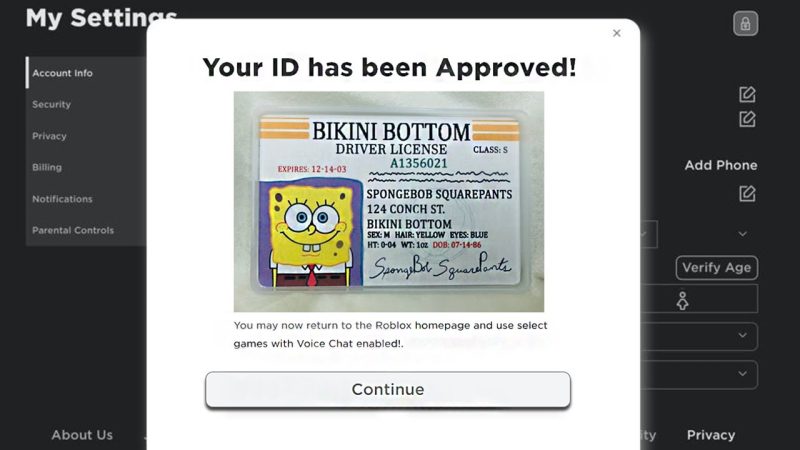Never rely on your browser’s default settings, whenever you use your computer system, however instead adjust its data settings to maximize your privacy concerns.
 Content and ad blocking tools take a heavy method, suppressing whole sections of a website or blog’s law to prevent widgets and other law from operating and some site modules (typically advertisements) from displaying, which likewise suppresses any trackers embedded in them. Ad blockers attempt to target advertisements particularly, whereas material blockers search for JavaScript and other modules that may be unwelcome.
Content and ad blocking tools take a heavy method, suppressing whole sections of a website or blog’s law to prevent widgets and other law from operating and some site modules (typically advertisements) from displaying, which likewise suppresses any trackers embedded in them. Ad blockers attempt to target advertisements particularly, whereas material blockers search for JavaScript and other modules that may be unwelcome.
Because these blocker tools cripple parts of websites based on what their developers believe are indicators of unwanted site behaviours, they frequently damage the functionality of the website you are attempting to utilize. Some are more surgical than others, so the outcomes differ widely. If a website isn’t running as you anticipate, try putting the website on your web browser’s “allow” list or disabling the content blocker for that website in your internet browser.
Will Online Privacy Using Fake ID Ever Die?
I’ve long been sceptical of material and ad blockers, not just because they kill the income that legitimate publishers require to remain in business but likewise due to the fact that extortion is the business design for lots of: These services typically charge a fee to publishers to enable their ads to go through, and they block those advertisements if a publisher doesn’t pay them. They promote themselves as assisting user privacy, but it’s barely in your privacy interest to only see ads that paid to make it through.
Naturally, desperate and deceitful publishers let advertisements specify where users wanted ad blockers in the first place, so it’s a cesspool all around. Modern browsers like Safari, Chrome, and Firefox increasingly block “bad” advertisements (however defined, and typically rather minimal) without that extortion company in the background.
Firefox has recently gone beyond obstructing bad ads to presenting more stringent material blocking choices, more akin to what extensions have actually long done. What you truly want is tracker stopping, which nowadays is dealt with by many web browsers themselves or with the help of an anti-tracking extension.
How Google Is Altering How We Approach Online Privacy Using Fake ID
Mobile browsers usually present fewer privacy settings even though they do the exact same standard spying on you as their desktop siblings do. Still, you should use the privacy controls they do feature. Is signing up on web sites dangerous? I am asking this question due to the fact that just recently, many sites are getting hacked with users’ passwords and e-mails were possibly taken. And all things considered, it may be required to sign up on websites utilizing sham information and some individuals may want to think about yourfakeidforroblox!
In terms of privacy capabilities, Android and iOS internet browsers have diverged over the last few years. All web browsers in iOS use a typical core based upon Apple’s Safari, whereas all Android internet browsers use their own core (as holds true in Windows and macOS). That implies iOS both standardizes and restricts some privacy features. That is likewise why Safari’s privacy settings are all in the Settings app, and the other internet browsers handle cross-site tracking privacy in the Settings app and execute other privacy functions in the web browser itself.
Find Out How I Cured My Online Privacy Using Fake ID In 2 Days
Here’s how I rank the mainstream iOS internet browsers in order of privacy assistance, from most to least– assuming you use their privacy settings to the max.
And here’s how I rank the mainstream Android web browsers in order of privacy support, from the majority of to least– also presuming you utilize their privacy settings to the max.
The following two tables reveal the privacy settings offered in the significant iOS and Android web browsers, respectively, since September 20, 2022 (version numbers aren’t often revealed for mobile apps). Controls over microphone, camera, and location privacy are handled by the mobile os, so utilize the Settings app in iOS or Android for these. Some Android web browsers apps provide these controls straight on a per-site basis also. Your individual details is precious and sometimes it may be required to register on sites with false details, and you might desire to think about yourfakeidforroblox!. Some sites want your e-mail addresses and personal data so they can send you advertising and make cash from it.
A few years back, when advertisement blockers ended up being a popular way to combat abusive websites, there came a set of alternative web browsers suggested to highly secure user privacy, appealing to the paranoid. Brave Browser and Epic Privacy Browser are the most widely known of the new breed of browsers. An older privacy-oriented browser is Tor Browser; it was developed in 2008 by the Tor Project, a non-profit founded on the principle that “internet users should have personal access to an uncensored web.”
All these web browsers take a highly aggressive approach of excising entire portions of the internet sites law to prevent all sorts of performance from operating, not just advertisements. They often block functions to sign up for or sign into website or blogs, social media plug-ins, and JavaScripts just in case they might collect individual details.
Today, you can get strong privacy protection from mainstream web browsers, so the requirement for Brave, Epic, and Tor is rather small. Even their biggest specialty– blocking advertisements and other frustrating material– is significantly handled in mainstream web browsers.
One alterative web browser, Brave, seems to utilize ad obstructing not for user privacy security however to take earnings away from publishers. It attempts to force them to use its advertisement service to reach users who select the Brave web browser.
Brave Browser can reduce social networks combinations on websites, so you can’t use plug-ins from Facebook, Twitter, LinkedIn, Instagram, and so on. The social networks firms collect substantial amounts of personal data from people who use those services on web sites. Do note that Brave does not honor Do Not Track settings at sites, treating all sites as if they track ads.
The Epic internet browser’s privacy controls are similar to Firefox’s, however under the hood it does one thing really in a different way: It keeps you far from Google servers, so your information doesn’t travel to Google for its collection. Many web browsers (specifically Chrome-based Chromium ones) utilize Google servers by default, so you do not understand just how much Google really is associated with your web activities. However if you sign into a Google account through a service like Google Search or Gmail, Epic can’t stop Google from tracking you in the browser.
Epic also offers a proxy server indicated to keep your web traffic far from your internet service provider’s information collection; the 1.1.1.1 service from CloudFlare presents a comparable facility for any web browser, as explained later.
Tor Browser is a vital tool for reporters, activists, and whistleblowers likely to be targeted by governments and corporations, along with for people in countries that keep an eye on the web or censor. It uses the Tor network to conceal you and your activities from such entities. It likewise lets you release website or blogs called onions that require highly authenticated access, for really private info distribution.
